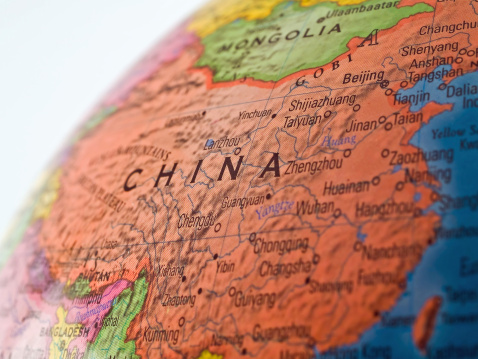Cars and Drivers
China Air Pollution Becomes Car Manufacturer's Greatest Enemy
Published:
The Chinese government agency that handles environmental issues told the residents of the huge city of Harbin to keep their cars and trucks garaged, as air pollution overwhelmed the city. It is the kind of health hazard that has been cited as a threat to the lifespan of many of China’s urban dwellers. It also presents a challenge to auto manufacturers that have gambled much of their future sales on the market in the People’s Republic.
The AP reported on the “super smog“:
The density of fine particulate matter, PM2.5, used as an indicator of air quality was well above 600 micrograms per cubic meter — including several readings of exactly 1,000 — for several monitoring stations in Harbin, according to figures posted on the website of China’s environmental protection agency. They were the first known readings of 1,000 since China began releasing figures on PM2.5 in January 2012, and it was not immediately clear if the devices used for the monitoring could give readings higher than that.
If the problem persists for several days or longer, much of Harbin’s consumer and commercial activity will stay locked down. Other Chinese cities may not have such health-threatening situations, but the pollution problem in some of the largest metropolitan areas may get worse in most years.
The China Association of Automobile Manufacturers recently released figures that showed car and light truck sales in the People’s Republic rose 21% to 1.59 million in September. By way of comparison, U.S. sales of cars and light trucks during the same month were 1.19 million. Sales in the world’s other huge market, the European Union, have fallen for months as a recession keeps its grip on the region.
Air pollution almost certainly will be a more substantial problem for car companies in China than consumer spending habits. The trouble hits at a time when the world’s large manufacturers have increased their investments in the People’s Republic. Volkswagen and General Motors Co. (NYSE: GM) hold the largest market shares in the country. Each has made it clear that its global ambitions rest heavily in the Chinese markets. Almost all of the next tier of car manufacturers by sales have announced that they will double down on their attempts to get a larger share of sales in the People’s Republic. For example, Ford Motor Co. (NYSE: F) will spend $300 million on a new manufacturing facility. Toyota Motor Corp. (NYSE: TM), Honda Motor Co. Ltd. (NYSE: HMC) and Nissan also are pouring money into China, as sales in their home market of Japan stagnate because of its troubled economy.
China car sales could crater, and crater fairly soon, if the central government finds that limiting the numbers of cars and trucks on the road is among the only means of preventing air quality from worsening.
Credit card companies are pulling out all the stops, with the issuers are offering insane travel rewards and perks.
We’re talking huge sign-up bonuses, points on every purchase, and benefits like lounge access, travel credits, and free hotel nights. For travelers, these rewards can add up to thousands of dollars in flights, upgrades, and luxury experiences every year.
It’s like getting paid to travel — and it’s available to qualified borrowers who know where to look.
We’ve rounded up some of the best travel credit cards on the market. Click here to see the list. Don’t miss these offers — they won’t be this good forever.
Thank you for reading! Have some feedback for us?
Contact the 24/7 Wall St. editorial team.